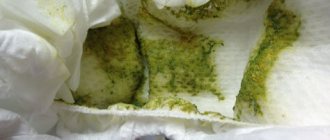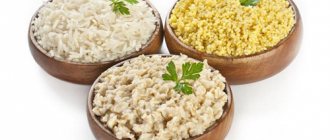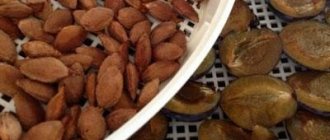Grapes are one of the most ancient crops cultivated by humans. The perennial plant is valued for its tasty and healthy berries, collected in loose clusters. Their color can be different and depends on the plant variety. Grapes are eaten fresh, dried and dried to produce raisins, juice is squeezed out of them, wine is made, and jam is made. Grape oil is extracted from the seeds, and the plant itself is often used for decorative purposes.
Source: depositphotos.com
Grapes contain a large amount of vitamins, microelements and mineral salts. Due to their high potassium content, grapes are beneficial for people with kidney and heart diseases. Regular consumption of it helps normalize heart rate and blood pressure, reduce swelling, eliminate shortness of breath, and normalize sleep.
Grapes are rich in carbohydrates, making them very nutritious. Due to its high calorie content, people who are overweight are advised to limit their consumption.
Despite all the beneficial properties, grapes can cause poisoning.
Why does my stomach hurt after eating and how to treat it?
Diarrhea from grapes is a very common phenomenon only if the product is consumed uncontrollably in large quantities.
It is recommended to eat any fruit in moderation. If a person begins to have diarrhea after eating grapes, it is worth reducing the amount of these berries in the diet, as they weaken. Diarrhea after such food can occur in both adults and children. In this case, you need to consult a doctor to find out what medications to take to restore intestinal microflora and normalize stool. Often the stomach stops hurting after stopping the consumption of berries, diarrhea goes away in one or two days and does not require special therapy.
However, any disturbances in the body must be noticed in time. People with gastritis or peptic ulcers should not eat a lot of grapes, as this can cause prolonged diarrhea. After juice or berries eaten on an empty stomach, the stomach may become upset and the mucous membrane may become inflamed, which also causes diarrhea.
1 Bananas and persimmons contain a minimum of coarse fiber.
2 Fruits have a pronounced strengthening effect, which is very effective for treating diarrhea.
Another reason why your stomach may hurt after eating is overeating. Due to the consumption of large amounts of drinks and food, the gastrointestinal tract experiences excessive stress, and the person, consequently, feels heaviness and pain in the epigastric region.
Some foods can also cause irritation of the digestive system, for example, pickles, fatty, cholesterol-rich and spicy foods.
Traditional therapies
Medicines such as Spazmalgon and No-shpa will help relieve spasmodic pain in the stomach after eating. If they are combined with nausea, heartburn and bloating, you can use Motilium or Motilak (these domperidone-based drugs also work well with belching).
Heaviness in the stomach can be either a minor nuisance or a signal of the development of a serious disease.
Read the article, analyze the situation and try to understand for yourself how much attention it requires.
Eating foods that have a bad reputation
Grape diets
Three day diet
The three-day diet includes the following actions:
- on the first day we eat half a kilogram of grapes;
- on the second day we eat one and a half kilograms of grapes;
- on the third day, about two kilograms of fruit.
After this procedure, it will not be diarrhea, but constipation. The diet does not weaken, but strengthens. Therefore, it is important to take walks, douse yourself with cold water in the morning, do gymnastics, and normalize sleep. In some cases, the doctor recommends chewing the seeds thoroughly so that the body receives valuable tannins.
The grape diet is a “delicious” way to lose weight
Important. Berries are eaten in equal proportions every two hours. Since grapes contain a lot of water, drink less liquid on the second and third days.
Four day diet
A very comfortable diet involves preparing hearty, appetizing dishes. The menu is varied. The body returns to normal in a short period of time, metabolic processes are normalized, and toxins are eliminated. Substances that are present in grape seeds fight the aging process in the body, so give preference to those with seeds.
Day 1 Breakfast: low-fat yogurt, white grapes.
Lunch: pumpkin salad, 100 g grapes.
We cut the pumpkin into small pieces, fry it, add grapes and herbs to taste. Season the salad with salt or salad mayonnaise, served with boiled pork.
Dinner: chicken breast 50 g, grapes 100 g, pineapple 60 g.
Day 2 Breakfast: add 100 grams of grapes to lemon yogurt.
Lunch: steamed rice and 25 g shrimp.
Boil the rice, mix with grapes, boil the shrimp and add to the rice. The dish is ready.
Grapes make delicious salads
Dinner: boiled potatoes, vegetable salad.
Chop vegetables. Boil vegetables in chicken broth until tender. Season to taste. At the end of cooking, add a tablespoon of low-fat sour cream.
Day 3 Breakfast: cottage cheese and grapes, make a sandwich.
Lunch: stewed white cabbage, white fish, fruit.
Stew the cabbage and onion until half cooked, place pieces of fish and grapes on top. Continue to simmer the dish until fully cooked, without stirring.
Dinner: grape jelly (from white berries).
Mix grape juice with soaked gelatin, stir thoroughly, and put in the refrigerator for an hour. Ready to eat.
Day 4 Breakfast: cottage cheese, grape slices placed on bread slices. Season to taste.
Lunch: pancakes with grapes.
We bake pancakes, wrap them in low-fat cottage cheese and grapes.
Dinner: vegetables, mushrooms with turkey.
We cut a small piece of meat, fry it in sunflower oil, then add champignons, broccoli, and carrots. Then pour in a glass of broth and simmer until done. At the end, berries and sour cream are added.
This four-day diet is excellent for weakening.
Seven day diet
We recommend another diet that weakens but does not cause diarrhea.
The first day is complete fasting to cleanse the body. Then every day one and a half kilograms of grapes are eaten in small portions, plus one and a half liters of clean water are drunk. As an alternative, you can use herbal infusions.
To get rid of pesticides, wash the berries in well-salted water. Before eating, the fruit is thoroughly rinsed in running water.
Thus, only in some cases can berries cause diarrhea (diarrhea). The main reasons are overeating and eating dirty berries. There is no need to talk about the benefits of juicy fruit. The only caution is how much and at what time of day you eat the product.
Causes of poisoning
Grape poisoning can occur for just a few reasons. Let's look at them in more detail below:
- Bacterial infection. Intoxication occurs as a result of eating several unwashed berries. No less dangerous are spoiled or fermented grapes, which should never be eaten. It is better to throw away berries that have rot.
- Botulism is a serious disease caused by intoxication with toxins from canned foods. Therefore, it is not advisable to consume grape jam or compote from jars that have been sitting in the cellar for more than 3 years.
- Individual intolerance to grapes. In some people, intoxication occurs due to allergies. You should not eat green grapes. Different varieties ripen at different times. Usually the grapes are ripe in late August - early September.
If you follow a number of rules when eating grapes, poisoning can be avoided. Therefore, you need to be careful about your health.
With frequent consumption of grapes, people do not even think about whether they can cause harm to the body. A bunch of ripe berries looks quite attractive, but at the same time it can contain a lot of toxic substances that cause fermentation in the stomach, which causes many symptoms.
The cause of intoxication can be not only toxins, but also the individual characteristics of the body.
- Having allergies.
- Individual intolerance.
- Ingestion of pesticides, chemicals or fertilizers that were used in growing the fruit into the body along with grapes.
The sunflower itself may not pose a health hazard. The cause of poisoning is the person himself, who violates the rules of transportation, storage and use.
Most often, the berries are injured, pathogenic microbes settle on them, for which a high glucose content is a good nutrient medium. In most cases, E. coli and fermentation bacteria are included. Spoiled berries can pose a health hazard.
Another reason is the ingestion of pesticides used to treat grapes against pests and diseases. Excessive use, contact with damaged berries, and insufficient washing before use can lead to intoxication.
There may also be intolerance to grapes or certain varieties of grapes, which is usually manifested by allergy symptoms. Finally, excessive consumption of this useful product can lead to severe headaches, increased blood sugar, and exacerbation of a number of chronic diseases.
Diarrhea or diarrhea usually refers to frequent watery stools, characteristic of infectious diseases of the gastrointestinal tract, accompanied by abdominal pain and an urgent urge to defecate.
Which varieties usually cause diarrhea?
Doctors warn that all varieties can cause stool upset. Regardless of which fruits are consumed - blue or green, they all have one thing in common - a laxative effect. Abuse of berries ends in the same way - intense diarrhea after grapes.
Blue varieties are considered especially dangerous for people suffering from diseases of the digestive tract. The presence of acidic substances provokes irritation of the mucous membranes, which ends quite predictably - loose stools.
Unripe fruits or those grown with the use of chemicals are a particular danger even for people who do not suffer from diseases of the digestive tract. Grapes that were picked when they are not fully ripened contain substances that can cause diarrhea. Pesticide treatments for yield lead to the accumulation of harmful elements in berries.
Signs of intoxication
Treatment of diarrhea from grapes directly depends on the root cause of the deviation. In most cases, the condition is not serious and does not require special treatment. All that is required is to eat only white bread crackers on the first day after the onset of diarrhea.
If you have prolonged diarrhea after eating grapes in your diet, you should seek help from a doctor. The doctor may recommend a diet. In this case, the following are excluded from the menu:
- soda;
- sauces;
- marinades;
- canned food;
- alcohol;
- meat broths;
- fatty and fried.
Rules that must not be forgotten
Separately, doctors remind people around the victim that the speed of provision of primary care and subsequent hospitalization will completely depend on how much the body will suffer.
That is why doctors always ask you to first call an ambulance, briefly explain the current situation, and only then begin providing first aid. This does not require special medical skills.
At the first stage, it is enough to remember three important rules:
- stop taking medications;
- do not use the influence of temperature;
- Do not give children adult medications.
The first point is usually often ignored by those who want to quickly relieve pain in the abdominal area. But any antispasmodic pills will only aggravate the situation, completely blurring the clinical picture. The doctor on duty who arrives at the “scene of the incident” is unlikely to praise those around him for his initiative. Against the background of the action of the drug, it will be more difficult for him to assess the degree of damage and the stage of infection.
Because of this ban, some folk craftsmen begin to study “grandmother’s” methods of alleviating current well-being, which is equally harmful. We are talking about trying to apply ice or a hot heating pad to the stomach. Such old-fashioned methods can only provoke the development of pancreatitis.
The final prohibition is the need to prohibit parents from trying to give their children adult products.
Symptoms of intoxication
Initial symptoms appear 2–4 hours after consumption. It is important to remember that body characteristics may differ from person to person, so someone may suffer from a single symptom, while another may suffer from multiple signs of intoxication. Grape poisoning entails the following symptoms.
- Nausea with vomiting.
- Pain and bloating in the abdomen.
- Increased body temperature.
- Diarrhea.
- Headache.
- Pain in the muscles of the body.
- Dry mouth.
- Constant thirst.
- Chills.
- Loss of consciousness.
- Rash on the body, breathing problems, swelling of the throat (occurs less frequently than others).
If a person exhibits complex symptoms that cause discomfort or severe pain, treatment should not be delayed. But you need to make sure that it is provided not only quickly, but also correctly, since some actions for the patient can be disastrous.
Grapes, at first glance, may seem like a harmless berry, but sometimes they contain toxic substances that cause poisoning in humans.
Usually the listed phenomena are less pronounced than with other types of food poisoning, the general condition suffers slightly, but sometimes there are severe cases, especially in children and the elderly.
If there is an allergic factor, itchy rashes appear on the skin, nasal congestion, and in severe cases there may be swelling of the upper respiratory tract and difficulty breathing.
Possible consequences
There are usually no consequences after grape poisoning. If first aid and treatment were carried out correctly, after 3-7 days all unpleasant symptoms disappear and the patient’s condition returns to normal.
Less common consequences of poisoning include:
- gastritis;
- pancreatitis;
- intestinal dysbiosis.
Such complications can occur in young children, the elderly, pregnant women and people suffering from chronic diseases of the digestive tract.
In young children, severe dehydration may occur as a result of poisoning.
First aid and treatment
If diarrhea appears after grapes or other signs of intoxication, it is necessary to begin immediate first aid. Moreover, it must be correct and performed in the following sequence:
- First, you should rinse the patient's stomach. To do this, he drinks a liter of boiled warm water or half a liter of potassium permanganate solution, which should be slightly pinkish. Then the patient washes his hands well and puts two fingers in his mouth, pressing on the root of the tongue. After this, vomiting will begin. The process should be repeated several times until the vomit becomes clear and free of food particles.
- Then you need to drink activated carbon or another adsorbent. Such drugs absorb toxic substances, thereby stopping further intoxication.
- You should drink as much liquid as possible: boiled water, still mineral water, unsweetened green tea. It is advisable to take a glucose-saline solution - rehydron or peditral. A similar solution can be prepared at home by mixing 1 tsp. soda and salt with 4 tbsp. l. Sahara. Half a liter of warm water is poured into the powder. The solution should be drunk in small sips every 15-20 minutes. Any liquid should be warm so that it is better absorbed by the body.
The patient must eat light food in small portions to gain strength. You shouldn't spend all your time in bed. Active movements promote the formation of sweat, which removes toxic substances. An important stage in the treatment of poisoning is the restoration of microflora. Therefore, it is necessary to choose the right probiotic.
Moreover, during intoxication you should adhere to a special diet, which will contribute to a quick recovery. All dishes should be light, boiled or steamed. Fried, smoked and fatty foods are completely contraindicated. You cannot drink alcoholic beverages.
To prevent various complications, you should remember what not to do. If the patient experiences pain in the stomach area, he should not be given painkillers. If you artificially remove pain, after contacting a specialist, he will not be able to establish the correct diagnosis.
In addition, you should not heat or cool your stomach. This can lead to the development of pancreatitis. If poisoning occurs in a child, he should not be given drugs for adults. Mild poisoning can be treated at home using adsorbent drugs, but if the patient’s condition worsens, it is necessary to urgently contact a medical facility for help.
First aid for intoxication should not only occur on time, but also be provided according to strict rules. Some actions taken during the provision of treatment may turn out to be incorrect and provoke the appearance of other symptoms that worsen the patient’s condition. To avoid such situations, you need to remember what not to do when self-medicating.
Often the only way to treat inflammation of the gallbladder and cholelithiasis is an operation to remove the diseased organ - cholecystectomy. The procedure is associated with certain consequences, which go away with proper postoperative therapy and diet. Most often, after removal of the gallbladder, the right side hurts under the rib. This condition is called postcholecystectomy syndrome.
After removal of the gallbladder, a person may experience various types of pain.
Norm for the postoperative period
Regularly in the morning before breakfast, drink a glass of birch bud tea (1 teaspoon of raw material per glass of boiling water, steep for an hour).
Manifestation of an allergic reaction
Despite the abundance of useful substances, grapes are a strong allergen due to the content of hay fever, sucrose, vegetative fungi and chemical additives with which they are treated during cultivation. If you have an individual intolerance, you should exclude it from your diet and consult a doctor.
Allergies to berries manifest themselves in three types:
- Anaphylactic shock. When an allergen comes into contact with cells of the immune system, substances that cause vasodilation are released into the blood. The reaction is life-threatening and can be fatal if medical care is not provided promptly.
- Rash on the body. It appears as spots of varying sizes and itching. May be accompanied by asthma attacks.
- Bronchospasm and laryngeal edema. The course of the allergy is similar to anaphylaxis, but differs in localization, as a result of which the larynx is affected, which can lead to suffocation.
How to get rid of flatulence
One of the causes of flatulence is the intake of large amounts of carbohydrates. Grapes contain 19% carbohydrates. And it contains even more sugar. On average there are 300 g of various saccharides per 1 kg. To prevent bloating from grapes, follow these tips: 1. Eat less (up to 300-400 g per sitting).2. If your stomach hurts from green grapes, buy black or red ones.3. Wash the fruit.
By the way, many people believe that the problem of flatulence lies in the peel. Like, if you don’t eat the peel, then it won’t swell. It's a delusion. Scientists have discovered that the peel contains natural phytoalexin resveratrol, which stops the development of cancer, protects against viral diseases and strengthens the body. This was tested in laboratory conditions on rats that had tumors due to the intake of carcinogens.
For stomach diseases, suck in your stomach on an empty stomach. This exercise is performed standing or sitting on the floor in a Turkish style or in the lotus position.
C The torso is slightly tilted forward, the palms are on the knees. After a full inhalation, slowly draw in the abdominal wall, and as you exhale, lift the diaphragm, drawing in the insides as much as possible.
Repeat 5-10 times. If this exercise is performed regularly, gastritis, colitis, gallbladder dyskinesia and flatulence are cured.
Pour 1 tbsp. spoon of dry crushed wormwood herb with a glass of boiling water, boil for 10 minutes, leave for an hour, strain, add honey to taste, because she is very bitter. Drink warm decoction 1-2 tbsp. spoons per day. Also try adding a small amount of powdered wormwood herb to your food as a seasoning.
For flatulence, drink a decoction of coriander, and the bloating will go away. Coriander seeds are ground in a mortar, 1 tsp. crushed seeds, pour a glass of boiling water and keep on low heat for another 2-3 minutes, let it brew for 15 minutes and filter. Drink 1/4 glass before each meal.
Recommendations
If you have grapes left and they have spoiled a little in a few days, then it is better to put them somewhere than to eat them, because in this case diarrhea is almost guaranteed. If you grow fruits yourself, you can prepare jams and preserves for the winter. Fresh berries should only be eaten when they are in season. Also, you should not give this product to children under 3 years of age, because at this age the digestive system of children is still just being established. After 3 years, you are allowed to give your child a couple of berries to try and see how he reacts to them. If diarrhea does not appear, then you can sometimes pamper your child with such a healthy treat. If even after a few berries the baby suffers from diarrhea, it is necessary to consult a specialist.
Medicines
| Name | Description | Contraindications | Cost, rub |
| Smecta | Has an enveloping effect. Absorbs toxins and pathogenic substances. Sold in powder form for suspension. | The drug is contraindicated in people with intestinal obstruction. | From 149 |
| Mezim | The drug is recommended for chronic inflammatory diseases of the stomach. Easily removes gases and toxins. | Not recommended for patients with acute pancreatitis. | From 85 |
| Festal | Prescribed for large losses of bile acids and diffuse liver diseases. Eliminates increased gas formation. | Not recommended for patients suffering from hepatitis, obstructive jaundice, cholelithiasis, or intestinal obstruction. | From 127 |
First aid
A person who has been poisoned by grapes needs immediate first aid to avoid serious consequences. When the first symptoms begin to appear, measures should be taken to alleviate the victim’s condition in a certain sequence.
- First you need to do gastric lavage. To do this, you need to give the person to drink 0.5-1 liters of water or dilute it with potassium permanganate, the color of which should be slightly pink. After the poisoned person has drunk the liquid, vomiting should be induced by irritating the tongue. This must be done until there are no remnants of eaten food left in the masses.
- It is worth taking absorbent drugs. They will be able to absorb toxic substances found in the gastrointestinal tract, and will also prevent subsequent symptoms of poisoning.
- The patient should drink as much water as possible to replenish lost fluids. You can replace it with unsweetened tea, mineral water (still), but you should not drink them right away, you need to take drinks in small portions. If you drink a lot of liquid at once, the urge to vomit may return.
If the patient’s condition is satisfactory, and the exact cause of the disorder is known, help can be provided at home. The algorithm of actions should be as follows:
- Rinse the stomach with lukewarm water with a slightly pink dilution of potassium permanganate, at the same time give at least 0.5 liters to drink at once and immediately induce vomiting, repeat the procedure several times until the water is clear.
- Give some sorbent to drink (activated carbon, polysorb, smecta).
- Drink plenty of fluids to replenish fluid loss: still mineral water, unsweetened green or chamomile tea, or pharmacy rehydrating saline solutions. You need to drink in small portions so as not to induce vomiting - half a glass every 10-15 minutes.
If the patient’s condition has improved and the stomach has stopped hurting after drinking grapes, you can continue taking the sorbent, liquid, give easily digestible semi-liquid food, and visit the doctor the next day.
The exception is cases of poisoning in children, the elderly and pregnant women, who need to immediately call an ambulance, and before it arrives, try to rinse the stomach and give a sorbent.
If the patient's condition worsens, he should be immediately sent to the hospital. If the degree of grape intoxication is moderate or mild, high-quality treatment can be carried out at home.
If signs of grape poisoning appear, you must begin providing first aid in the following sequence:
- Gastric lavage. To perform this procedure at home, a poisoned person should drink 0.5–1 liters of warm water or a pale pink solution of potassium permanganate, and then, irritating the root of the tongue, induce vomiting. This procedure should be repeated several times until the rinsing water no longer contains any admixture of previously eaten food.
- Taking absorbent medications. This could be Activated Carbon, Smecta, Polysorb MP, Filtrum STI, etc. The mechanism of action of these drugs is their ability to absorb toxic substances located in the lumen of the gastrointestinal tract, thereby preventing further intoxication.
- Drink plenty of fluids to replenish fluid loss. You can drink weak tea without sugar, mineral water without gas, but best of all - one of the glucose-salt solutions (WHO powder, Regidron, Peditral). You should not immediately drink a large volume of liquid, as this increases nausea and can provoke an attack of vomiting, leading to the opposite result than expected.
When is self-medication not recommended?
In some cases, hospitalization is a prerequisite:
- Symptoms of intoxication are often accompanied by complications. It is necessary to call a team of doctors who will provide professional first aid and transport the patient to the clinic.
- It is forbidden to resort to home therapy if poisoning is detected in an elderly person. Weak immunity creates additional risks, and the threat of death increases significantly.
- Many medications are contraindicated for a pregnant woman. In addition, her body is subject to double stress. Improper use of drugs can lead to abnormalities in fetal development.
- When symptoms of poisoning do not disappear for 2 or more days.
In such conditions, you should not hesitate to treat grape intoxication at home or in the hospital; you should immediately call an ambulance.
Treatment for grape poisoning at home
With stomach pain, a person experiences severe discomfort, which does not allow him to live in the normal rhythm of life. Of course, at the first manifestations of pain, you need to consult a doctor who will determine the exact cause of its occurrence.
However, there are times when the stomach aches due to nervousness or in a pregnant woman, as well as during poisoning. What is important here are the accompanying symptoms, which will help to suspect the presence of a more serious disease. Today we will look at what to do when your stomach hurts after eating, after chemotherapy, from antibiotics, and also what to do if your child has a stomach ache.
Causes of stomach pain
Contraindications
Can grapes cause diarrhea? – this is exactly the question that mothers often ask on various forums. Of course, after eating grapes, many children, as well as adults, may experience a symptom such as diarrhea. Grapes have a laxative effect. If such a symptom occurs after eating berries, it is necessary to reduce the amount of product consumed.
If unpleasant symptoms appear, you need to adjust your diet. It is strictly forbidden to eat grapes on an empty stomach. This can lead to inflammation of the mucous membrane, which, in turn, provokes diarrhea. Also, eating grapes is contraindicated for people who suffer from diseases such as:
- ulcer;
- gastritis;
- acute pancreatitis;
- diabetes;
- obesity.
If a child or adult suffers from diarrhea after eating berries, consult a doctor. An experienced doctor will be able to advise in detail on the permissible amount, and will also help to exclude the presence of ailments for which you cannot eat berries. In order not to irritate your body, fruits should be consumed in moderation and all processing rules must be followed.
Fruits indicated for loose stools, what to eat from fruits for diarrhea?
For diarrhea, fruits that have a strengthening effect are indicated - apples, persimmons, pears, bananas, quinces. Before use, they must be heat treated: baked or dried in the oven.
Baked fruits for diarrhea can be consumed whole or pureed by rubbing the fruits through a colander or sieve. From dried gifts of nature, you can cook a compote, which will not only restore the balance of fluid in the body, but also supply the internal organs with the nutrients necessary for full functioning.
Possible complications
Severe grape poisoning with the development of complications is rare, but it still occurs, and you need to know about it. Early severe complications include:
- Dehydration due to vomiting and diarrhea, most often in children;
- Development of severe allergies - laryngeal edema, anaphylactic shock;
- Acute pancreatitis with severe abdominal pain of a girdle nature, a violation of the general condition.
In most cases, grape intoxication is quite mild and goes away within a couple of days without any consequences. With severe diarrhea and vomiting, the patient may develop dehydration. This complication is especially dangerous for young children, since with the loss of electrolytes and fluid they may develop acute renal failure and hypovolemic shock.
Grape poisoning in most cases is mild and goes away within a few days without any long-term consequences.
With severe vomiting and diarrhea, the patient may develop dehydration. This complication is especially dangerous for young children, since the loss of fluid and electrolytes in them can cause hypovolemic shock and acute renal failure.
After grape poisoning, some patients experience various digestive dysfunctions during the rehabilitation period. For a speedy recovery, they are recommended to follow a therapeutic diet (table No. 4 according to Pevzner), as well as take enzymatic preparations.
What to pay attention to
No matter how hard people try to protect themselves from poisoning, this can happen to anyone, since in appearance grapes cannot give any cause for concern. It has long been noted by our ancestors that “without chewing the grapes, you won’t know the taste,” the main thing in this case is to prepare for all sorts of unexpected surprises.
Weak and elderly people, nursing and pregnant mothers, as well as children - this is the category that needs to be treated most carefully, since all the symptoms can manifest themselves much stronger, faster and more fully than in an ordinary and healthy adult. For them, even minor poisoning can have serious consequences.
It is for this reason that when treating at home, you need to limit yourself to the minimum mandatory processes and not provoke artificial vomiting unless absolutely necessary. If possible, it is necessary to restore the water balance by consuming warm tea, water, and decoctions. When treating with medications such as probiotics and sorbents, you must follow the instructions exactly: frequency and dosage of use, as well as contraindications.
After primary medical care has been provided at home, you must definitely call an ambulance.
Prevention
To avoid intoxication, you should follow some rules and recommendations.
Prevention of grape poisoning involves thoroughly washing grape bunches under running water. Berries with damaged skin, an unpleasant sour or putrid odor, or with mold on the surface should not be eaten.
1 Wash your hands thoroughly before eating.
2 Use special products for washing vegetables and fruits.
3 Follow the cooking technology, especially when it comes to meat or fish.
4 Don't overeat: eat small portions every three hours.
5 Drink only boiled water.
6 Avoid eating suspicious products, even if their expiration date has not yet passed.
7 Follow your medication regimen.
8 Do not eat fresh vegetables, fruits and berries on an empty stomach, especially if you have chronic diseases of the gastrointestinal tract.
Preventive measures
To avoid food poisoning, it is necessary to follow a number of preventive measures. Before eating grapes, you should wash your hands with soap and rinse the bunches well under running water. You cannot try berries at the market while purchasing .
If you don’t want to buy a pig in a poke, you need to at least peel off the skin, and then try only the pulp. Purchased fruits should be stored in the refrigerator, where bacteria will not grow. Thus, although grapes are practically harmless, they can also cause food poisoning. Therefore, you need to follow the rules for its use. Self-medication is possible only in mild cases of intoxication. Otherwise, you must urgently contact a medical facility.










